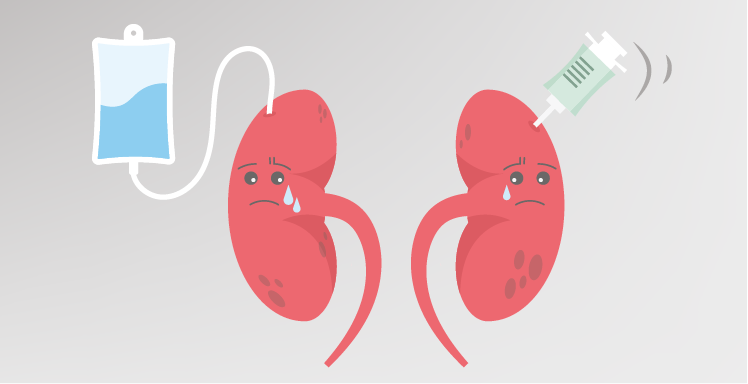CKD vaccination

In Dr. Anil Patel’s kidney clinic, vaccination is a crucial aspect of comprehensive care for patients with chronic kidney disease (CKD). Vaccination helps protect patients from infectious diseases and reduces the risk of complications associated with CKD. Here’s how vaccination might be managed in his clinic:
Vaccination Schedule: Dr. Patel follows established vaccination guidelines from organizations such as the Centers for Disease Control and Prevention (CDC), the Advisory Committee on Immunization Practices (ACIP), and the Kidney Disease: Improving Global Outcomes (KDIGO) guidelines. These guidelines recommend specific vaccinations for patients with CKD based on age, immunization history, comorbidities, and kidney disease stage.
Routine Vaccinations: Dr. Patel ensures that patients with CKD receive routine vaccinations recommended for their age group, such as influenza (flu) vaccine, pneumococcal vaccine (PPSV23 and PCV13), tetanus-diphtheria-pertussis (Tdap) vaccine, and herpes zoster (shingles) vaccine. These vaccines help prevent common infections and complications that can be particularly harmful to individuals with CKD.
Special Considerations: Patients with CKD may have specific vaccination needs based on their kidney disease stage, treatment modalities (such as dialysis or kidney transplant), and risk factors for infection. Dr. Patel evaluates each patient individually to determine the most appropriate vaccination strategy and timing.
Hepatitis B Vaccination: Patients with CKD are at increased risk of hepatitis B virus (HBV) infection, especially those on hemodialysis or undergoing kidney transplantation. Dr. Patel ensures that patients receive hepatitis B vaccination according to the recommended schedule, which may involve a series of doses followed by booster shots as needed.
Educational Outreach: Dr. Patel educates patients and their caregivers about the importance of vaccination in protecting against infectious diseases and reducing the risk of complications in CKD. He provides information about recommended vaccines, vaccination schedules, potential side effects, and the benefits of vaccination in improving overall health outcomes.
Collaboration with Primary Care Providers: Dr. Patel collaborates with patients’ primary care providers (PCPs) to ensure that vaccination needs are addressed comprehensively and that patients receive appropriate vaccinations based on their overall health status and medical history. This collaboration facilitates continuity of care and promotes patient safety.
Documentation and Monitoring: Dr. Patel maintains accurate and up-to-date records of patients’ vaccination history, including dates of administration, types of vaccines received, and any adverse reactions reported. He monitors patients for vaccine-related adverse events and provides appropriate management or follow-up as needed.
Promotion of Influenza and Pneumococcal Vaccination: Given the increased susceptibility of patients with CKD to respiratory infections, Dr. Patel emphasizes the importance of annual influenza vaccination and pneumococcal vaccination to reduce the risk of influenza-related complications, pneumonia, and hospitalization.
Overall, vaccination is an essential component of preventive care in Dr. Anil Patel’s kidney clinic, aimed at reducing the burden of infectious diseases and improving the health and well-being of patients with chronic kidney disease. By following evidence-based guidelines and providing individualized vaccination recommendations, Dr. Patel strives to optimize vaccination coverage and enhance patient outcomes in CKD.
